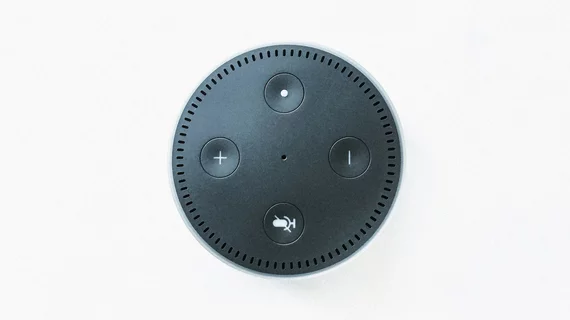Conversational AI helper goes live for healthcare consumers in Colorado
Colorado’s UCHealth system has extended the reach of “Livi,” an AI-powered virtual assistant it introduced early this year, from its website to patients’ smart speakers.
The service is so far only available to consumers with Amazon’s Alexa on hand, but UCHealth plans to adapt it for those using Google Assistant, according to an item published by the institution’s news division.
A video demonstration posted with the article shows a spoken request for help with a cut finger.
Within seconds, Livi—who sounds like Alexa—recommends a visit to a nearby UCHealth urgent-care center.
The institution’s chief marketing and experience officer, Manny Rodriguez, says this new adoption of conversational AI grew out of UCHealth’s focus on pleasing patients with more convenience and easier accessibility.
“Patients want information at their fingertips—whether that be via phone, computer or even smart speakers—and we want to be able to give them what they need as quickly and easily as possible,” Rodriguez says.
The healthcare system, which operates more than 150 facilities, is now working to integrate Livi with its EHR and its mobile app. The latter will let patients ask about upcoming appointments, latest test results and so on.
UCHealth’s CIO, Steve Hess, notes the Livi technology is HIPAA-compliant but does not diagnose any conditions or replace conversations with a doctor.

